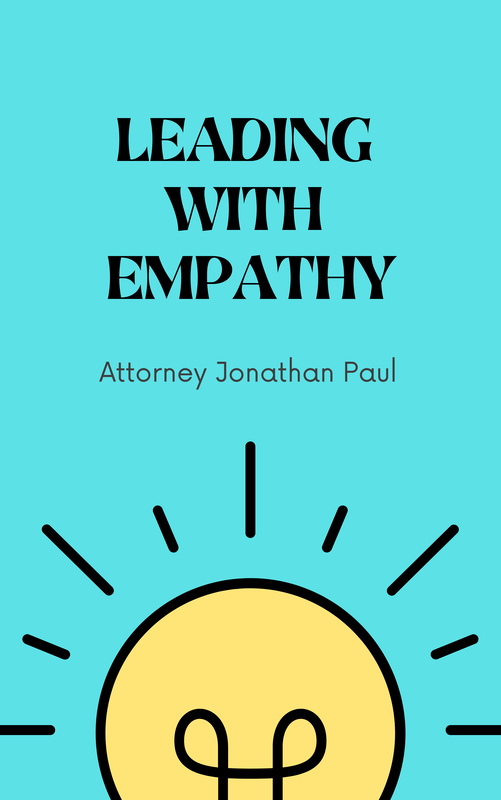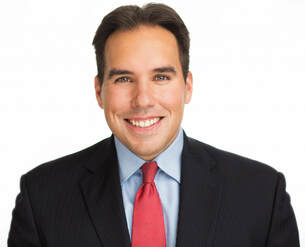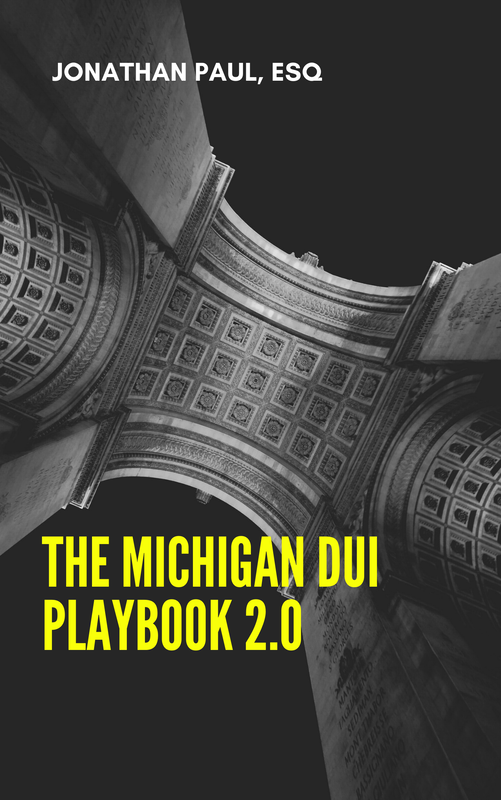|
I’ve already covered how my proactive program helps inside the courtroom with the prosecutor, judge, probation and outside the courtroom in my client’s life, but I also wanted touch on a few additional thoughts on felony DUI cases.
When you’re charged with a felony in Michigan, prison is now on the table. In Michigan, a jail sentence is a firm number, and usually ends up being less time served. When sentenced to prison, you only get a minimum number, but the maximum always remains in place; you must also be paroled out; there is no automatic return home date. Going to prison for a DUI case in Michigan can mean a very long time away from your friends and family. Although a third DUI in Michigan could mean up to 5 years in prison, and a DUI causing death could be 15 years in prison, jail is still the most likely outcome for felony cases. In fact for a DUI third offense, there is a mandatory 30 day jail sentence that must be imposed by the judge. While work-release, house arrest and other alternatives were used in the past by judges, most Michigan judges are now following the 30 day jail minimum without these alternatives. In fact, most judges I come across usually have 60 to 120 days jail in mind when it comes to a third offense DUI. When I work with a client who is charged with a third offense DUI, we may be able to work toward a misdemeanor reduction, which avoids a felony record, 5 years worth of prison on the table, possibility of keeping a driver’s license, and the mandatory jail sentence. This is quite rarely offered, but in some Michigan counties it is a real possibility. This result doesn’t just happen, it must be earned, and my program provides the tools and resources to get it done, and get it done well. The first thing any client who is charged with a felony DUI does on my program is begin testing 2-3 times per day daily for alcohol. There is zero benefit of the doubt from anyone once you’ve had 3 or more DUI arrests. The client will also get into intensive counseling and hit an AA meeting 3-5 times per week. These are minimal considerations. I typically add a few other requirements into the mix. Getting my client started on the program provides the client an opportunity to climb out of the very deep hole they have dug for themselves. It’s likely their own families and friends have turned on them at this point, and the community views them as nothing more than a very dangerous and untrustworthy criminal. I try to provide the client with something new, something they have never had in their life. I offer a rigorous program, providing structure and unlimited opportunity to change the perception of their case. Following my lead could mean avoiding a felony, jail, prison and loss of the ability to drive. Each felony DUI in Michigan presents it’s own challenges, but also opportunities to create a healthier client and a safer community. I will not even consider a client charged with a felony DUI if they are not willing to dig in deep, and follow my lead 100 percent. Winning your life back Michigan Drunk Driving - Being Proactive and feeling good about yourself5/5/2016
Yes being proactive is mandatory when you work with me, and yes it is mostly geared to help us with the prosecutor, judge and probation, but in the end it could save my client’s life. Most clients come to me for a DUI after the worst night of their life, and something led to this moment in time. My client may be having trouble at work, medical issues, trouble at home or simply have an out of control substance abuse issue. A client comes to me for help inside the courtroom, but I probably help them even more outside of the courtroom.
I see clients at their worst; they come to me with everything on the line. A client’s freedom is on the line, finances are about to get tight, and their ability to drive is in jeopardy. Sometimes my client is in a bad place medically, and without my help, will hurt themselves or someone else in the community. I’ve yet to work with a client who did not tell me during the case, or at the end of the case that my proactive program really helped them get their life together. The average DUI case in Michigan lasts about 8 weeks, and longer if we go to trial. Many of my client’s cases are not completed until 6-12 months after the actual DUI incident happened. During a DUI case in Michigan, a court at most is doing some alcohol and drug testing, but the client is allowed to drive without restriction, and free to live their life however they wish. There isn’t much to stop a client from drinking and driving at this point in the case; if the client has an alcohol problem, the addiction will be stronger than fear of a bond violation. Sometimes a case takes awhile to be charged, and a client can have weeks and months go by before a court is even monitoring them for drugs and alcohol. This is exactly why I require all of my clients to go on my proactive plan from day one. Even if the end result is a dismissal of charges, or a not-guilty at trial, the client still found themselves arrested and charged with a DUI offense. This is enough of a reason to make changes in your life, and put a number of safety measures (for the client, their family and the community) in place. Not only will the program help once we’re in court, but I need a sober and clear-minded client to assist me during the case. I need a client who has sweat equity in the result, and a I need a client who is learning from the case no matter the outcome. My ideal case result for a client is the following: Client comes to me after a DUI arrest. Depending upon criminal history and the facts of the case, the client begins proactive alcohol testing to hold themselves accountable from day one. The client is not using illegal drugs, and they pass a 10-panel drug screen, and they test daily for alcohol. The client undergoes an alcohol screening and assessment and follows the recommendation (education and or/treatment), and attends AA on a weekly basis. I may also send the client to an Impact Weekend or intensive outpatient or inpatient counseling. As my client is making changes in their life, and holding themselves accountable, I am working all angles on their behalf to have their case dismissed via motion or at a hearing, and come up with potential trial defense. Best case, we make the case go away, but my client has learned from the situation, and will never put themselves in the same situation again. I also hope that their family and friends can learn from the situation, and the case has a broad impact on society in a very positive way. I’ve had clients share their stories with friends and family, which have inspired those people to be more aware of their own decisions. Outsiders see my client who is otherwise successful and put together, and realize that no one is immune to getting in trouble while behind the wheel. The worst thing would be for a client to get off, not learn from it, assume they’ll get off the next time, and continue this dangerous pattern of bad choices. Nobody likes drunk driving; every single one of my client’s would agree as well, and it’s my job that my clients learn, and avoid the same pitfalls in the future. It would be a disservice to the community if I was enabling bad behavior; I drive on the same roads, as does my family and friends; I want to prevent future DUI’s just as much as law enforcement. If my client has followed the proactive program, we have likely resolved the case with the prosecutor in a very favorable way. This may have meant a reduction in charges, down to a lower drunk driving charge, or to a non-drunk driving offenses.
No matter what deal we work out with the prosecutor, the judge is aware of what the original charge was, and could simply treat the sentence as if my client plead guilty to the original higher charge. An example of this would be if my client was originally charged with Operating with a High BAC, and say their BAC level was 0.24. If I am able to leverage my client’s proactive achievements into a reduction in charges to Operating While Intoxicated, or even better, the judge may still focus on the original facts of the case. Although having the High BAC charge avoids a mandatory ignition interlock on your case, a judge can still make that part of your sentence even if you plead to a lower charge. Same can be said about things like mandatory jail time on second offenses if we’re able to get the charge reduced to a first offense. Same goes with probation. Most impaired drunk driving cases receive 6 to 12 months of probation, while a High BAC case tends to be 12 to 24 months. If your case is reduced from High BAC to Impaired Driving, you would think you’d receive the typical Impaired sentence, but most judges will still treat it like the more serious charge. These situations are why my proactive program is so important. When a client of mine resolves a case with an impressive reduction in charges, I make the point to explain to the judge WHY the reduction was made; my client earned it, it wasn’t just handed over to get rid of the case. I want the judge to know that despite some of the unfavorable facts in the case, my client has already started the process of moving on and learn from the situation, which we hope and believe was, and will be isolated. It’s also my goal to cover many parts of a sentence in advance. For example, if I know a judge typically sentences a client to 50 hours of community service, I will have my client do it ahead of time. It’s better for my client to pick the organization, spend their time with the organization without the “court ordered” cloud over their head, and not have the penalty of jail hanging over their head if they fail to accomplish the community service. I also don’t want my clients being ordered to pick-up trash on the side of the road in the winter. We do the same for AA meetings, alcohol education/treatment and having a substance abuse assessment done ahead of time. Ideally, our own professional is doing the evaluation, and not the one hand picked by the court. We may also be able to do what is known as same day sentencing if we have done the evaluation ahead of time. This saves my client at least two trips to court, a meeting with probation, and starts the clock on probation. When you’re ordered to return for sentencing, this could be two months later, which basically ads two months to your probation. When charged with a DUI offense in Michigan, a client has two options. The client can sit back, let their attorney do their job, and hope that things work out in the end. The other approach has the client equally engaged on a daily basis; this is the proactive approach, which all of my clients must do from day one.
I am very selective in who I agree to take on as a client; I am looking for motivated clients who are looking to change the perception of their case on a daily basis. When a client is arrested and charged with a DUI, the perception of the police, prosecutor, judge and the community is my client is a dangerous person, and can’t be trusted to make good choices with alcohol or driving. When a client’s freedom and ability to drive can be taken away, it’s time to get serious about changing this perception. If I agree to take on a client, I provide the tools and resources for that client to be proactive on day one. Each case is different, and each program is customized, but generally the program involves an alcohol screening and assessment, alcohol education and/or treatment, attendance at AA meetings, proactive volunteer work, alcohol and drug testing among other components. If my client follows my lead, it helps open options for our case. All DUI cases in Michigan are either resolved with litigation (motions, hearings or trial) or resolution (plea bargain with prosecutor). As a former prosecutor in Michigan and New York City, I have worked out 1000’s of deals on both ends of the table. All cities, township and county prosecutors have a different litmus tests for plea bargaining, and each case is different. Most DUI cases have some ugly elements to it; prior criminal history, prior DUI history, high BAC reading, accident, client is under 21, rude behavior by my client to the police, along with a handful of other potential issues. When it comes to resolving these cases, I need to overcome many negative facts in my client’s case, and my words alone can only go so far. All clients have jobs they can’t lose, all clients need to drive to work and to take care of their family, nobody can afford to go to jail, and nobody wants a DUI on their record. These factors DO NOT make you unique when charged with a DUI. The more successful you are, the more professional licenses you hold, and the better career you have, the higher the standard is set by the prosecutor and judge. Just because you’ve been a doctor for 30 years, doesn’t mean a thing to a prosecutor; if anything it will be held against you for knowing better than getting yourself in this situation. While I present my client’s past, present and where they are going in the future, this is not enough to distinguish my client. Because my client has spent weeks if not months being proactive, I can drop these accomplishments on the prosecutor and distinguish my client from the other names in the prosecutor’s stack of files. These proactive accomplishments can be the difference between having or not having a drunk driving conviction on your record, losing or keeping your license, going to jail, having an interlock on your car for a year, having your car immobilized more points on your license, higher fines, costs and driver responsibility fees and other major differences. By following my proactive program, you are helping your case every single day, and putting yourself in the best position to reach the best resolution within the context of your case. As the client makes progress on the program, I proudly share this information with the prosecutor in order to educate them on how you are different than their typical case. I have set a high bar with past clients, so prosecutors are almost expecting my clients to be rock stars. I lay out the client accomplishments in a memorandum to the prosecutor along with proposed motion that I would file if the case cannot be resolved. As a former prosecutor I provide this information in a very respectful way to the other side, and keep the door open for resolution, but I am firm in the possibility of litigating the case. This approach gives my client the best of both worlds. The Public Health Code sections governing disciplinary proceedings are MCL 333.16201–.16249. In contrast to the Occupational Code (see §5.5), the Public Health Code lists the following criminal convictions as grounds for an investigation and possible disciplinary action for all licensees regulated under the code:
Michigan Drunk Driving: Employment & Education Consequences
If you've been convicted of a Michigan drunk driving offense, there could be major ramifications for your employment, various licensing and/or higher education. - Licensed brokers under federal and state law could lose their ability to be a brokers - When you fill out a job application, you must check the yes box for convictions - You may need to disclose your conviction to Human Resources, which could lead to employment termination - You could lose a company car, and/or the insurance policy, which covers that vehicle - Inability to rent a car from national chains, which could affect business trips and vacations - A licensed professional (lawyer, doctor, dentist etc) may have their license suspended or revoked. - Applicants for the above mentioned professional licenses may have their application denied or delayed - You may be denied a concealed weapons permit, which could put a job in jeopardy, which requires ability to carry a weapon - A commercial driver's license could be suspended or revoked, which could affect employment. - You may lose your employee sponsored health and/or life insurance policy, which could leave your family and loved ones without coverage - You may be denied security clearance, which may cost your job with that employer - Military career may be terminated or limited due to a DUI conviction - You may be denied admission to college or professional schools (law school, business school, nursing, medical school etc) - A teacher may lose his/her job because of a DUI conviction - A pilot could have their license suspended or revoked due to a conviction. - You may be denied the ability to work as a bartender or waitress - If you are a member of a union, you may be terminated if you do not report your conviction. - All CPA's must report DUI convictions under the Sarbarnes-Oxley Act. - Scholarship athletes could lose their scholarship and be kicked out of school for DUI convictions - Celebrities and entertainers could have contracts terminated based on DUI convictions. |
Click to Email Me Categories
All
|
Ann Arbor Office LocationPlymouth Office Location |
Representing DUI Clients in MichiganRepresenting clients charged with a DUI in Ann Arbor, Canton, Brighton, Howell, Saline, Adrian, Taylor, Plymouth, Northville, Westland, Ypsilanti, Pittsfield Towsnhip, Warren, Sterling Heights, Farmington, Pontiac, Romulus, Lansing, Novi, South Lyon, Southfield, Birmingham, Bloomfield Hills, Royal Oak, Troy, Rochester, Jackson, East Lansing, Garden City, Livonia, Dearborn, Detroit, St Clair Shores, Hazel Park, Ferndale, Madison Heights, Waterford, Milford, Shelby Township Clarkston, Oak Park, Berkley, Fraser, Sterling Heights, Clinton Township and others throughout Washtenaw, Wayne, Monroe, Jackson, Genesee, Macomb, Ingham, Lenawee, Livingston and Oakland County.
|







